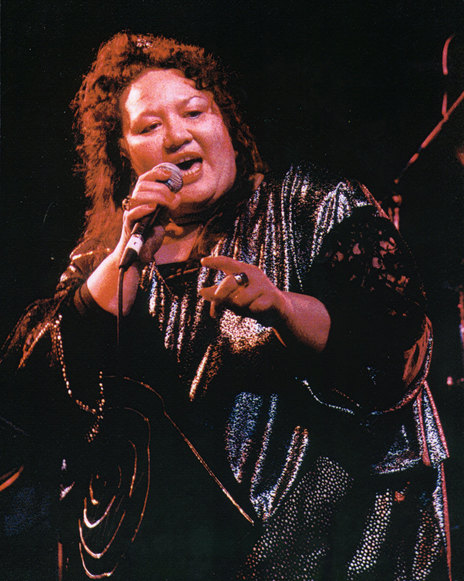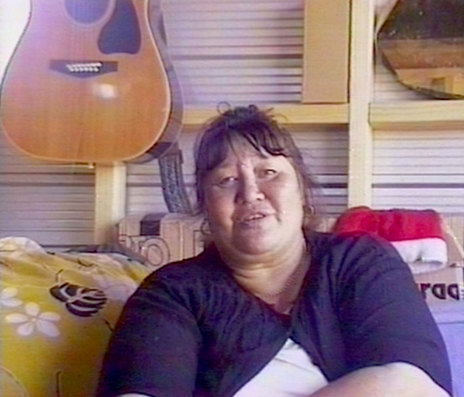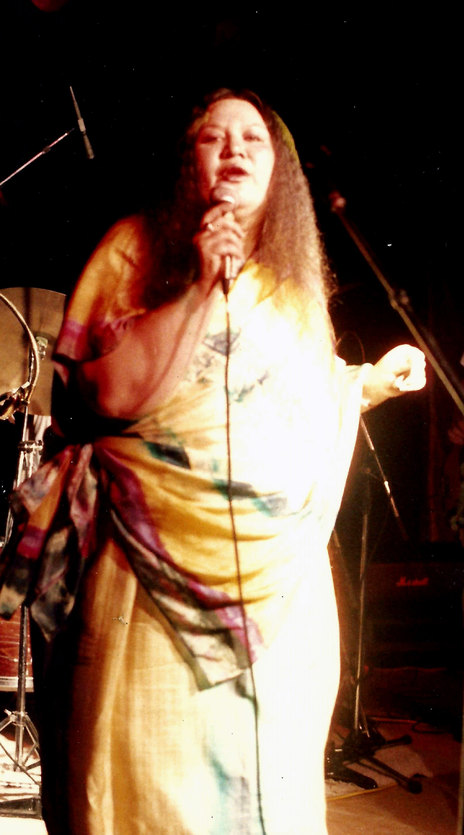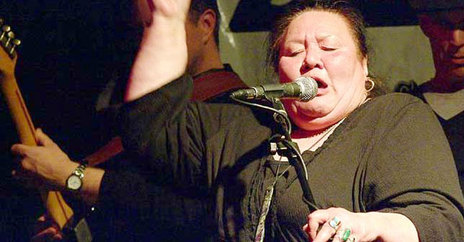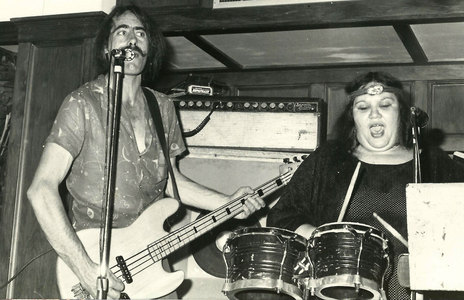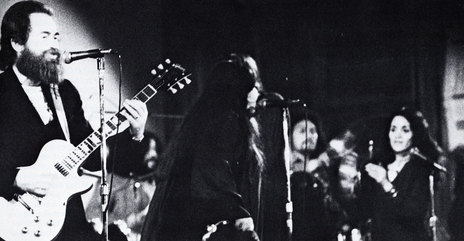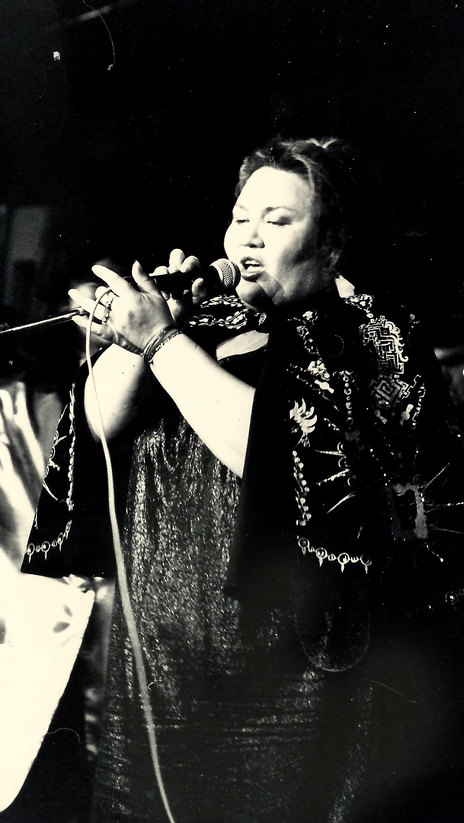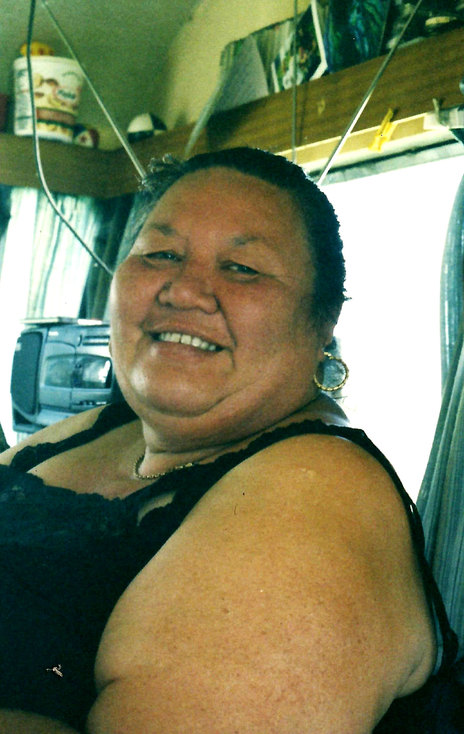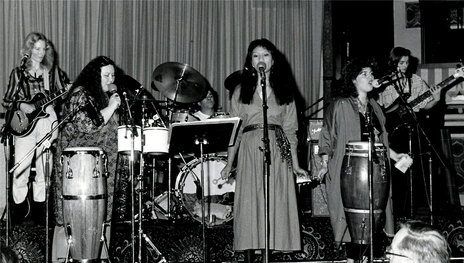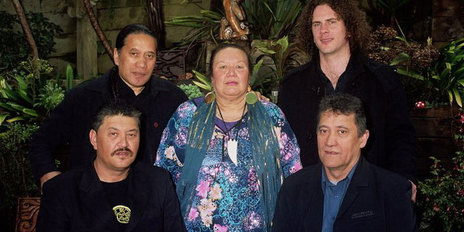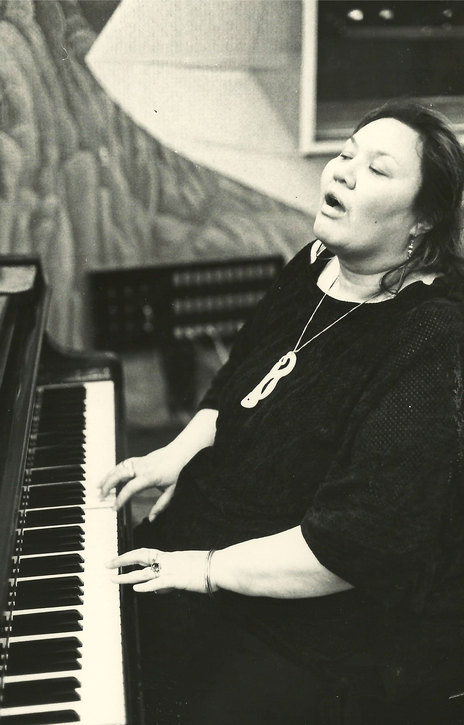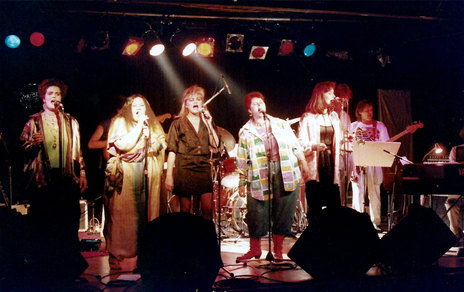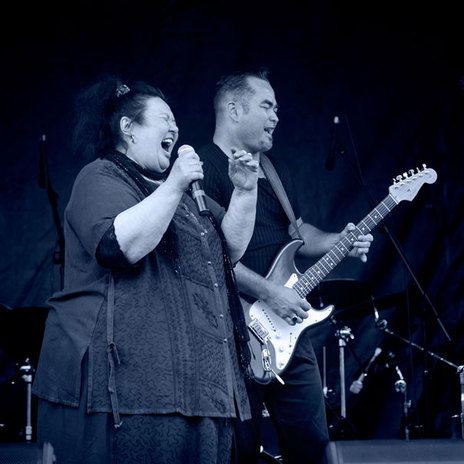Mahia Carole Blackmore was born January 2, 1949, in Palmerston North, the eldest of five children. In 1954 the family moved to Tangimoana, a small isolated coastal community 30kms away. It was an idyllic childhood, largely divided between a largely European community (“we were the only Māoris although there was a Samoan family”) and Parewahawaha Marae in Bulls, papakāinga of Mahia’s mother. Mahia’s father hailed from Otaki and had been a member of Te Whare Quintet, a Kapiti vocal group of the 1940s.
Her repertoire was mostly culled from current hits – Dusty, Lulu and a personal favourite, the big-voiced ballads of Shirley Bassey.
Music was everywhere, at home, at school, and especially at the marae. Mahia developed a hankering to sing at an early age and music would always feature in her curriculum. She left school at 15, working at a drycleaners and hitting the talent quest circuit around Manawatu, Horowhenua and Rangitikei, occasionally venturing further afield. Her repertoire was mostly culled from current hits – Dusty, Lulu and a personal favourite, the big-voiced ballads of Shirley Bassey.
“I was sponsored by an aunt and uncle,” she remembers, “and their daughter, my cousin, who more or less managed me. They drove me to the talent quests and the occasional paying cabaret gig.
“I always got a bloody second in the finals! The only time I ever got first place was my very last talent quest – I’d already decided to pull away – and the prize was a recording contract with HMV.”
Typical for the times, the HMV contract didn’t eventuate, although Mahia did record two tracks at Wellington’s Broadcasting House. The drummer was Bruno Lawrence. Nothing came of the recordings and Mahia returned to the cabaret/supper club circuit. “It was a matter of providing what [the venues] required but I needed to break out. Palmy had quite a thriving music scene and I had started to meet some of the players.”
In 1969 Mahia joined her first band, Ryde, with a repertoire more to her liking – Van Morrison, Carole King and, later, the soulful sounds of Donny Hathaway and Roberta Flack. Mahia’s talent didn’t go unnoticed and she impressed an acquaintance from Queen Elizabeth Technical College – Palmerston North’s guitar supremo Billy Te Kahika (Billy TK).
When Mahia joined Billy TK & Powerhouse in 1972, the band was just finishing a residency at Wellington’s Lucifer’s. Shortly after Mahia joined, the band returned to Palmerston North to become resident band at a new nightclub, the Boulevard, operated by Te Kahika’s pal, Murray Taylor. As a resident band, Powerhouse required a large repertoire, which was certainly eclectic but with a leaning towards the social soul of Curtis Mayfield and the improvisational work-outs by the likes of Santana and John McLaughlin.
It was at the Boulevard where Mahia Blackmore hit her stride, found her chops, as they say. The band grew in size (sometimes a dozen or more players on stage) and several of those who passed through were to feature in Mahia’s post- Powerhouse career, notably Ara Mete, Hattie St John, Arnold Tihema and Bud Hooper.
“Powerhouse was all new to me,” Mahia says, “the music, the lifestyle, the communal living. It was pretty far out and some of the songs went on for an hour!”
During her four years with Powerhouse, Mahia recorded two albums and performed at the Great Ngaruawahia Music Festival, playing directly after headliners Black Sabbath.
During her four years with Powerhouse, Mahia recorded two albums and performed at the Great Ngaruawahia Music Festival, playing directly after headliners Black Sabbath. They played other major outdoor events, double-billed with BLERTA and Mammal, and were particularly popular on the university circuit. And there was always the Boulevard.
“It all came to a close when the club got busted,” Mahia recalls, “although the band was already unravelling a little. I’d had enough myself, it was just getting too much. Billy’s solos were getting longer and spacier, less room for vocals, and I wanted to sing.”
The time spent with Powerhouse did have long-term benefits for Mahia Blackmore – competing with Te Kahika’s guitar, her vocals had developed and matured into a strong-voiced bellow, reminiscent of blues singers like Bessie Smith and … Ma Rainey.
Elk was next, a quintet who played around the Manawatu traps until venturing to Auckland, where they disbanded, in 1977.
1977 was also the year Mahia entered into a relationship with eccentric singer-songwriter Corben Simpson, whom she had known since the early-1970s. It lasted 10 years and Mahia always speaks fondly of Simpson, no bad blood there. But it couldn’t have been easy, living with Simpson’s erratic, off-the-wall behaviour. Living like gypsies, they spent months on end on the road. For a spell they lived in rural Rangitikei; the offer of a gig in Putaruru brought that to an end.
“I told Corben to phone them up to confirm but, no, not Corben, so we hop into the van, drive up and … no gig. Stranded, no money. We ended up staying there, just outside Tokoroa.”
There was a summer tour with the Mahana collective and occasionally the pair would utilise a rhythm section but mostly they worked as an acoustic duo. Looking back, Mahia says, “I wouldn’t say I regret any of it but you have to question some of our decisions, career-wise. With Corben I went to places I never thought I’d visit, much less perform. Sometimes we’d just pull up and go to the pub for a beer and then Corben would be setting up the gear. That happened all the time, playing for drinks.”
Corben Simpson did his own thing in his own way and there wasn’t much Mahia could do to change it. “Corb wanted to play what he wanted to play. But so did I! It made for some sticky situations but mostly Corben got his way.”
Something had to give. In 1983, now Auckland-domiciled, Mahia broke away. “I decided to play with people who wanted to do the same stuff as me. Which, of course, went down like a ton of bricks with Corben.”
Mahia began appearing at Andy Cave’s Streets Ahead Cafe in Symond Street (later the Performance Cafe). A regular feature was a Women’s Night, which led to a series of concerts by Auckland’s female performers. Out of this came Meg And The Fones, an ever-changing line-up with a nucleus of Mahia, guitarist Janice Leef, bassist Jane McAllister and percussionist Olivia Stephens. McAllister’s husband, Bud Hooper (ex-Powerhouse) more or less financed the group, acted as manager and sometimes played drums in the otherwise all-female group. Others to pass through included Truda Chadwick and Mina Ripia.
Meg And The Fones built up a solid Auckland following and recorded an album for Ode Records, Meg Was Here (1985). One of the tracks, Little Tui, won Mahia Song Of The Year at the 1986 APRA Silver Scroll Awards.
Meanwhile, another venture, again growing out of the Streets Ahead Cafe, was titled Ladies Sing The Blues, and featured Mahia, Katy Soljak, Truda Chadwick and Hattie St John (occasional guests included Lena Days and Dianne Swann). Streets Ahead was soon far too small to accommodate demand and the collective began performing at larger venues, including three full houses at The Gluepot, the final season of shows at Phil Warren’s Ace Of Clubs, and a sold out performance at Tommy Adderley’s International Jazz & Blues Festival.
There were other groups – stints with the Tony Littlejohn and Sonny Day Bands, the Rhythm Mamas and the Wahine Collective (with Edwina Thorne and others), even the occasional gig with Corben –the pair split up in 1987.
The 1990s brought Mahia Blackmore’s Head Office (the name she applied to her makeshift bands throughout the decade) and there was the national Flying Youth Tour, reunited with Billy TK in Wharemana. In 1998 Mahia teamed up with Gavin Collinge (ex-Powerhouse and Elk) as Cushy Numbers. Following a South Island tour in 1999, Mahia retired to the family spread at Parewahawaha Marae for a break and, it has turned out, has remained there ever since.
Not that the music has left her. She provided backing vocals on Kiri Te Kanawa’s Maori Songs album, still plays around the central North Island with the Paradise Band, toured with the reformed Powerhouse in 2009 and the reformed Ladies Sing The Blues in 2010.
--
Mahia Blackmore passed away on 31 May 2021. She remains one of Aotearoa’s truly great R&B singers – powerful and rough-hewn like all the great blues belters – sadly under-recorded but with a formidable reputation as a live performer.
